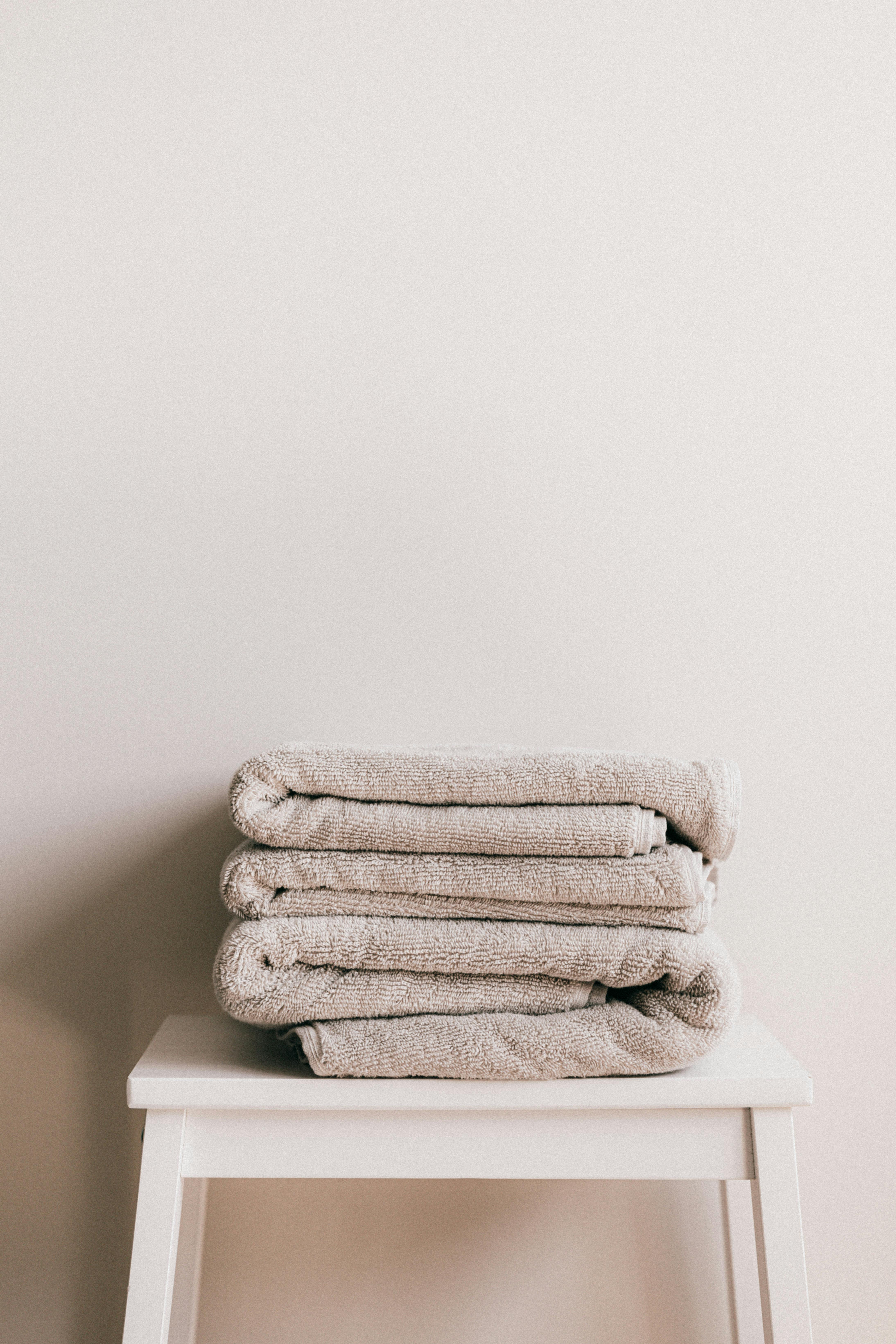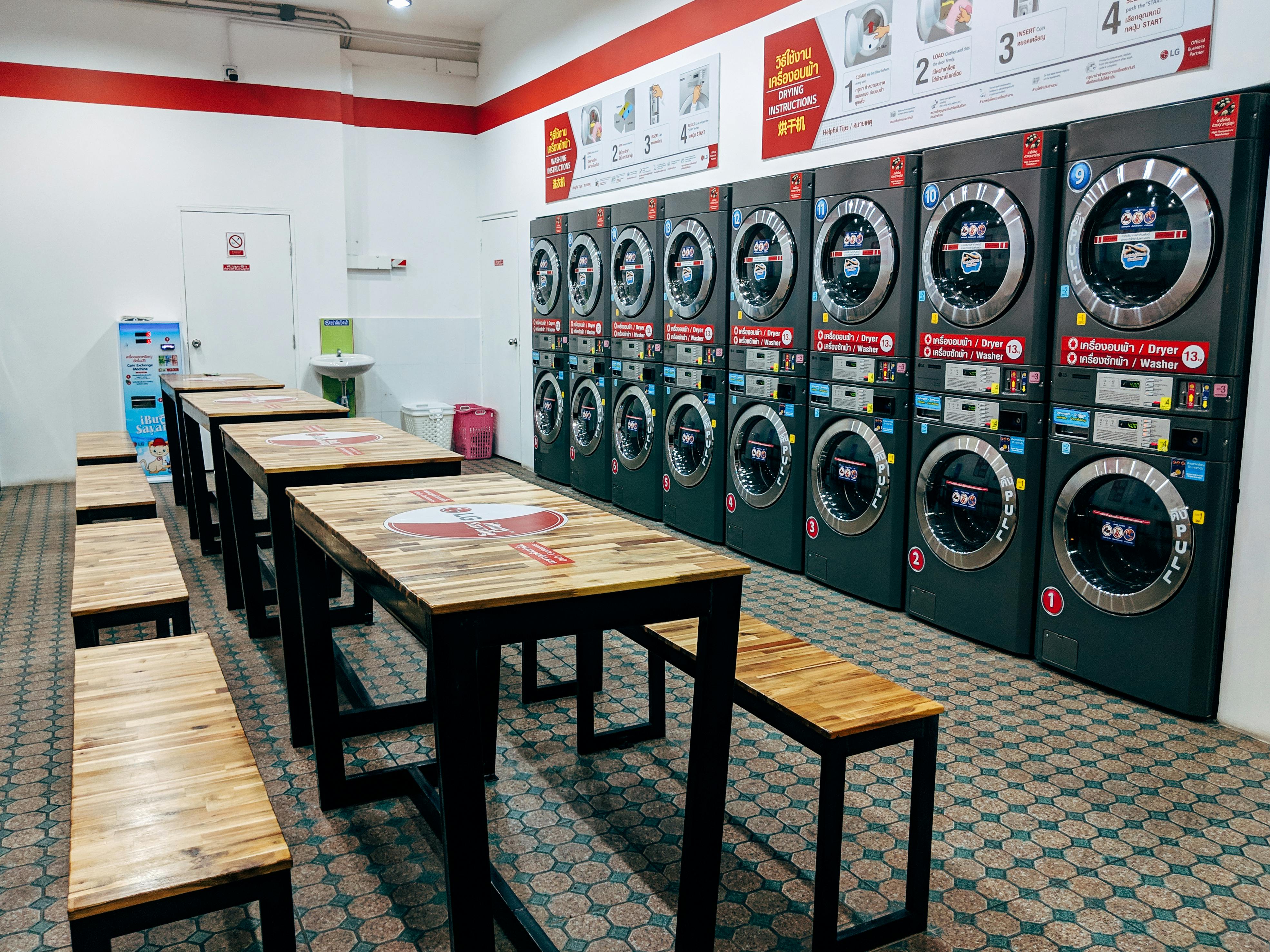Choosing the Right Commercial Laundry Equipment
Choosing the right commercial laundry equipment is crucial for your business. It can significantly impact your operational efficiency and customer satisfaction.
But how do you make the right choice?
This guide will help you navigate the process. We'll explore the different types of equipment, their features, and benefits.
We'll also delve into key considerations like load capacity, space requirements, and utility consumption.
Whether you're starting a new laundry business, upgrading your facilities, or considering leasing options, this guide is for you. Let's help you make an informed decision.
Understanding Commercial Laundry Equipment
Commercial laundry equipment is designed for heavy use. These machines cater to businesses that require large-scale laundering.
They differ significantly from household machines. Commercial washers, dryers, and ironers come with higher capacity and durability.
High-capacity machines are essential for handling large loads efficiently. This capability reduces the time and resources involved in laundry services.
Commercial machines also feature advanced technology. Features like programmable controls and automatic chemical dispensers enhance productivity and reduce errors.
Key Factors to Consider When Selecting Equipment
Choosing the right commercial laundry equipment is crucial. It impacts efficiency and customer satisfaction.
Understand the types of equipment available. Consider washers, dryers, and specialty machines.
Load capacity is essential. Larger loads mean less time spent on laundry.
Utility consumption affects operating costs. Choose energy-efficient models to save money.
Space requirements matter. Ensure your facility can accommodate the equipment size.
Advanced technology can streamline operations. Features like automatic dispensers can reduce labor costs.
Evaluate the machine's durability. Reliable machines handle heavy use without frequent issues.
Consider leasing options if capital is tight. Leasing can provide access to high-end machines.
Here’s what to keep in mind:
Load capacity
Utility consumption
Space and layout
Advanced features
Durability and reliability
Research manufacturers. Choose brands with solid after-sales support.
Finally, think about long-term goals. Equipment should align with business growth plans.
Load Capacity and Utility Consumption
Load capacity determines how much laundry you can process. Larger machines handle more linens in one go.
Utility consumption affects your bottom line. Energy-efficient machines use less power, cutting costs over time.
Machines with high-spin speeds reduce drying time. This feature saves both energy and time.
Consider water usage too. Efficient machines use less water, benefiting both costs and sustainability.
Space Requirements and Layout
Space is a fundamental consideration. Make sure your facility can house the desired equipment.
The layout impacts workflow. Plan for ease of movement and accessibility.
Consider modular designs. This feature allows for easy reconfiguration as needs change.
Evaluate noise levels. Quiet equipment is beneficial, especially in mixed-use buildings.
Advanced Features and Technology
Advanced features enhance efficiency. Look for programmable controls and smart technology.
Automation reduces manual work. Features like automatic dispensers minimize human error and labor.
Check for IoT-enabled equipment. Such technology offers remote monitoring capabilities.
Advanced diagnostics are also valuable. They help in quickly identifying and fixing issues.
The Benefits of Energy-Efficient Machines
Energy-efficient machines play a critical role in reducing operational costs. They consume less power, leading to lower utility bills.
These machines also contribute to environmental sustainability. Reduced energy use means less reliance on non-renewable resources.
Investing in energy-efficient equipment can lead to additional financial benefits. Some regions offer rebates or incentives for purchasing eco-friendly appliances.
Moreover, these machines often have a longer lifespan. Their advanced engineering ensures less wear and tear over time.
Lastly, using energy-efficient equipment can enhance your brand's reputation. Customers appreciate businesses that prioritize eco-friendly practices.
Leasing vs. Purchasing: What's Best for Your Business?
Deciding between leasing and purchasing depends on your business goals. Each option has unique benefits and challenges.
Leasing commercial laundry equipment can reduce initial costs. It's a suitable choice for businesses with limited capital.
When leasing, you avoid equipment obsolescence. Leasing contracts often cover maintenance, reducing unforeseen expenses.
On the other hand, purchasing equipment gives you full ownership. This eliminates monthly payments associated with leases.
Buying equipment might offer tax advantages. Depreciation can be a significant financial benefit.
Consider the total cost of ownership when deciding. Factor in maintenance, utility, and potential downtime costs.
Here's a quick comparison to consider:
Leasing: Lower upfront costs, flexible upgrades, maintenance included.
Purchasing: Ownership, potential tax benefits, no ongoing lease payments.
Lease Coin Laundry Equipment Options
Leasing coin laundry equipment provides flexibility. This option is ideal for new businesses or those wanting to minimize capital investment.
With leasing, you're able to upgrade easily. You can adapt quickly to new technologies or changing needs.
Most leasing contracts include maintenance services. This ensures machines stay in top condition, minimizing downtime.
Review the contract terms carefully. Understand the lease duration, renewal options, and any potential fees.
The Advantages of Purchasing Equipment
Owning equipment provides long-term financial benefits. After initial purchase and installation, there are no ongoing payments.
Having no leases allows for greater financial predictability. You control your expenses without fixed monthly outgoings.
Owning allows businesses to customize features to suit specific needs. This can enhance efficiency and user experience.
Finally, purchased equipment often retains some resale value. It provides an asset that can be leveraged or sold if needed.
Maintenance, Service Contracts, and After-Sales Support
Maintaining commercial laundry equipment is crucial. Proper upkeep ensures machines operate efficiently and last longer.
Service contracts often cover routine maintenance tasks. These contracts can prevent costly breakdowns and prolong equipment life.
Investing in after-sales support is wise. Reliable support minimizes downtime and keeps operations smooth.
Choose equipment from manufacturers with strong reputations. They typically offer better after-sales services and support.
Regular maintenance checks can spot issues early. This proactive approach saves money and enhances reliability.
Financing Your Commercial Laundry Equipment
Financing options can make commercial laundry equipment more accessible. Spreading the cost eases the financial burden.
Consider equipment leasing as a flexible option. Leasing can be a smart choice for those watching cash flow.
Loans are another viable path. Financing through loans can provide favorable terms depending on creditworthiness.
Evaluate each financing option carefully. Choose one that aligns well with your business's financial strategy and growth plans.
Conclusion: Making an Informed Decision
Choosing the right commercial laundry equipment is essential for business success. It impacts efficiency and customer satisfaction.
Consider all factors like capacity, space, and technology. These elements influence operation costs and quality.
Weighing leasing against purchasing is crucial. Each has unique benefits that suit different business models.
After-sales support and maintenance are key for longevity. Reliable service ensures equipment operates seamlessly.
Stay informed and plan thoroughly. Making the right choice boosts profitability and ensures long-term success in your laundry business.




